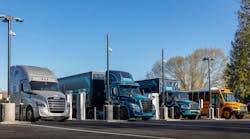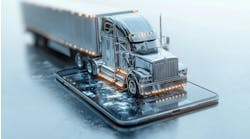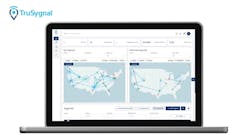Andreas Gorbach, Daimler Truck AG’s new chief technology officer, set the premise for the company’s new technology roadmap during a May 20 Strategy Day with investors. As an independent company, Daimler Truck plans to ramp down internal combustion engine (ICE) powertrain spending and redirect research and development to zero-emission vehicle (ZEV) technologies by 2025.
According to Gorbach, Daimler will shift its focus to ZEV propulsion and operating systems. He emphasized the importance of the commitment to both battery-electric vehicles (BEV) and hydrogen fuel-cell solutions. He was also quick to point out that the catalyst to move ahead quickly with this transition is total cost of ownership for fleet customers.
“In the very moment that the customer starts benefiting more from a zero-emission truck than from a diesel truck, there is no reason to buy the diesel truck anymore,” Gorbach explained. “This is the tipping point. We are convinced that this starts happening in 2025 for battery electric and in 2027 for fuel-cell electric trucks.”
ZEV partnerships
Beginning with the fully electric Fuso eCanter in 2017, Daimler Truck has established a broad portfolio of ZEV commercial vehicles around the globe. ZEVs such as Freightliner's eCascadia and eM2, Mercedes-Benz eActros and eCitaro, and the Thomas Built Buses Jouley are operating daily and have driven more than six million miles in real-world applications.
To further accelerate the company's BEV ramp-up, Daimler announced key battery technology and charging infrastructure partnerships during its Strategy Day.
Daimler Truck AG and lithium-ion battery manufacturer and developer Contemporary Amperex Technology Co. Limited (CATL) announced the extension of an existing partnership. CATL will be the supplier of lithium-ion battery packs for the Mercedes-Benz eActros LongHaul battery-electric truck, which is planned to be ready for series production in 2024. The supply will extend beyond 2030, Daimler noted.
In addition, the companies intend to jointly design and develop additional advanced next-generation battery cells and packs for truck-specific applications, with a focus on scalability support for different truck applications and compatibility with future electric truck models, Gorbach noted.
Daimler Truck is also kick-starting charging infrastructure in European and North American markets. In Europe, Mercedes-Benz Trucks announced a partnership with Siemens Smart Infrastructure and Engie to provide charging solutions for truck fleets at depots, while Daimler Trucks North America’s powertrain unit Detroit announced a partnership with Power Electronics to provide onsite consulting, installation and support for 350 kW megachargers.
In addition to its focus on battery-electric trucks, Daimler intends to accelerate the development and deployment of hydrogen fuel-cell electric vehicles (FCEVs)—backed by the cellcentric joint venture with Volvo.
Since infrastructure remains a key challenge, Daimler Truck announced a new partnership with Shell to jointly drive hydrogen-based fuel-cell trucking in Europe.
Shell intends to initially roll out a hydrogen-refueling network joining hydrogen production hubs at the Port of Rotterdam in the Netherlands, as well as Cologne and Hamburg in Germany. From 2024, Shell aims to launch heavy-duty refueling stations between the three locations, and Daimler plans to hand over the first heavy-duty hydrogen trucks to fleets subsequently in 2025. The plan of both companies is to expand the hydrogen-powered freight corridor, which will cover 1,200 kilometers by 2025, and deliver 150 hydrogen refueling stations and some 5,000 Mercedes-Benz heavy-duty fuel-cell trucks by 2030.
Regarding the overall operating system for ZEVs, Gorbach noted that step by step, Daimler will eventually reduce the complexities in a truck.
“The benefit for the customer is more uptime, less workshop visits, and more efficient shop visits as the shop already knows that the customer is coming and what to do,” he explained.
“Today, we already understand very well what the customer is doing with the truck,” Gorbach added. “With all the data we get here, we understand even better in every second the customer uses the truck—what is he doing and how can we further improve the truck?”
In 2023, Gorbach said Daimler will launch the first evolution of fully connected electric trucks that will be ready for the next-generation of safety systems, over-the-air updates, predictive maintenance, and even autonomous driving.
“Autonomous is one of the holy grails out there and to win in autonomous, we are following a dual-track strategy,” explained Martin Daum, CEO of Daimler Truck AG.
Late last year, Daimler and Waymo signed a global partnership to deploy Level 4 autonomous technology on Freightliner Cascadia trucks. Daimler also has been working with Torc Robotics to extend real-world autonomous truck testing in the U.S.




